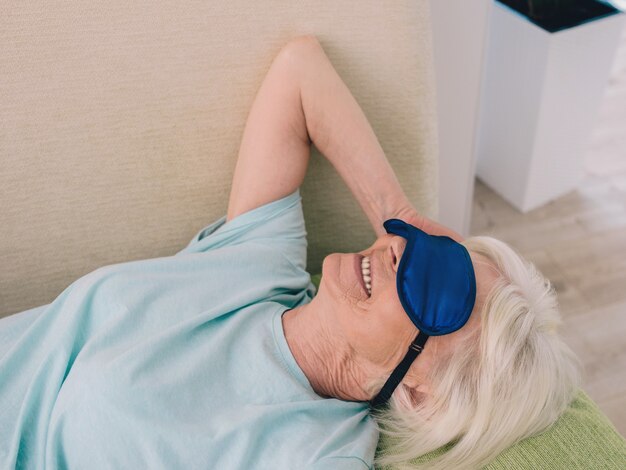Your Guide to How Often Will Medicare Pay For a Sleep Study
What You Get:
Free Guide
Free, helpful information about Medicare Insurance and related How Often Will Medicare Pay For a Sleep Study topics.
Helpful Information
Get clear and easy-to-understand details about How Often Will Medicare Pay For a Sleep Study topics and resources.
Personalized Offers
Answer a few optional questions to receive offers or information related to Medicare Insurance. The survey is optional and not required to access your free guide.
When Will Medicare Cover Your Sleep Study?
Sleep disorders affect millions of people, and understanding when Medicare will cover a sleep study can be crucial for those seeking diagnosis and treatment. Navigating Medicare's policies can seem daunting, but with the right information, you can make informed decisions about your health care.
Understanding Medicare Coverage for Sleep Studies
Medicare may cover sleep studies if deemed medically necessary. These studies are typically conducted to diagnose conditions like obstructive sleep apnea (OSA), a common disorder involving interrupted breathing during sleep. Before scheduling a sleep study, it's essential to consult your healthcare provider. They will determine whether you meet Medicare's criteria, ensuring that the service is both necessary and will be reimbursed.
Types of Sleep Studies Covered
- Polysomnography (PSG): This comprehensive study is usually conducted overnight at a sleep center.
- Home Sleep Tests (HST): In some cases, Medicare may cover at-home studies for patients at high risk for OSA.
- Follow-Up Studies: If initial tests show complex sleep apnea or if symptoms persist, Medicare might cover additional studies.
Medicare Part B covers these services, but it’s crucial to utilize Medicare-approved providers to avoid unexpected expenses. Additionally, you remain responsible for the Part B deductible and 20% of the cost.
Frequency of Coverage
Medicare does not have a specific limit on how often you can have a sleep study. Coverage depends on whether your healthcare provider demonstrates the continuing medical necessity. Frequency is typically guided by ongoing symptom assessment or insufficient results from previous studies.
Exploring Broader Financial Assistance Options
Maintaining your health shouldn’t lead to financial strain. While Medicare helps manage costs, there are other assistance programs designed to alleviate healthcare-related financial burdens.
- Medicaid: For those with limited income, Medicaid can sometimes cover additional services Medicare doesn’t, or help pay for premiums and out-of-pocket expenses.
- State Pharmaceutical Assistance Programs (SPAPs): These programs help pay for medications, which might be relevant if you’re prescribed medication as part of your sleep disorder treatment.
- Veterans’ Benefits: Veterans might be eligible for health coverage which includes sleep studies, through the Department of Veterans Affairs (VA).
Financial Tools Beyond Healthcare
Managing medical costs is just one aspect of overall financial health. Consider exploring these resources:
- Debt Relief Options: If medical bills or other debts pile up, consulting with a certified debt counselor can provide clarity and options for consolidating or clearing debt.
- Credit Card Solutions: Some credit cards offer 0% introductory APR on new purchases or balance transfers, which can help manage healthcare expenses interest-free.
- Education Grants: For those considering a new career, retraining options funded by grants can provide new opportunities without adding tuition debt.
Balancing healthcare needs with financial stability is crucial. Armed with this knowledge, you can confidently approach Medicare and other supporting resources to ensure both your health and financial peace.
Financial Resources at a Glance:
- 🚑 Medicaid: Aids low-income individuals in covering medical costs.
- 💊 SPAPs: Helps with medication costs.
- 🎖️ Veterans’ Benefits: Provides healthcare to eligible veterans.
- 💳 Debt Relief & Credit Solutions: Explore zero-interest credit offers or debt counseling.
- 🎓 Education Grants: Fund a new career or skillset upgrade to improve future financial stability.
What You Get:
Free Medicare Insurance Guide
Free, helpful information about How Often Will Medicare Pay For a Sleep Study and related resources.

Helpful Information
Get clear, easy-to-understand details about How Often Will Medicare Pay For a Sleep Study topics.

Optional Personalized Offers
Answer a few optional questions to see offers or information related to Medicare Insurance. Participation is not required to get your free guide.


Discover More
- Am I Elgible For Medicare
- Am I Enrolled In Medicare
- Am I Qualified For Medicare
- Are Adult Diapers Covered By Medicare
- Are Chemotherapy Drugs Covered By Medicare Part d
- Are Colonoscopies Covered By Medicare
- Are Covid Tests Covered By Medicare
- Are Cpap Machines Covered By Medicare
- Are Cpap Supplies Covered By Medicare
- Are Dental Implants Covered By Medicare
